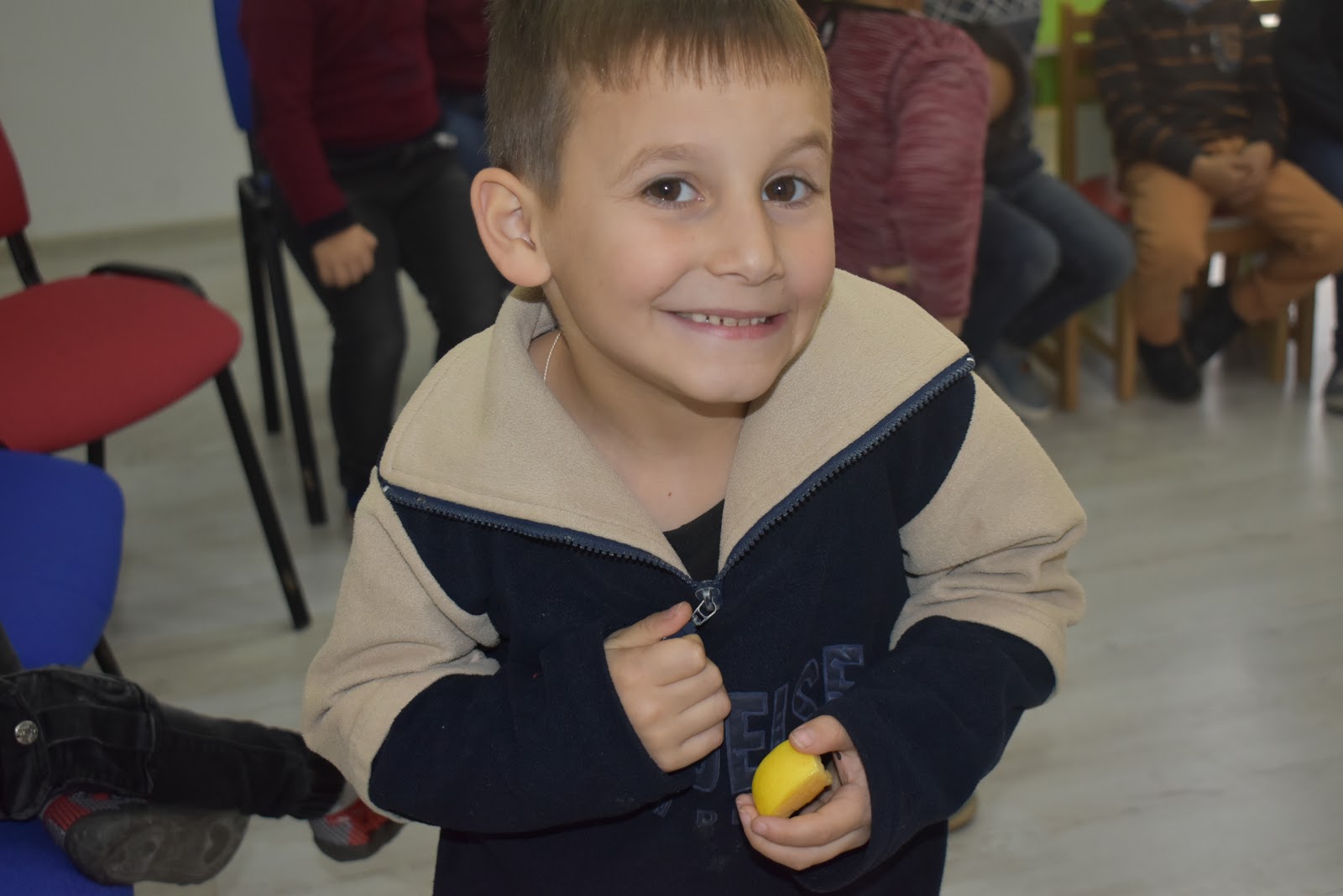
I noticed Gor when I first entered the classroom of energetic three and four-year-olds at Gyumri’s new KIDO preschool. Unlike several of the others who shied away from my camera, he leaned in, posing, grinning and boldly requesting a photo.
From the moment I arrived at the child development center, I felt that something was different. I’ve been to my fair share of Gyumri area schools, and the word that first comes to mind is “depressing.” At KIDO, however, it’s “fresh.” The colors are bright, the design is appealing, the approach is innovative and the warmth is palpable. More than anything, KIDO exudes the creativity of a great idea combined with a dynamic team.
In 2018, Moscow-born Arthur Gasparyan came to Gyumri with Birthright Armenia, a volunteer program for diasporan young adults. With an interest in children’s education, Gasparyan ended up volunteering at Sunland, a one-room kindergarten for vulnerable families which operated out of a Soviet-era chess school. Despite the poor conditions of the classroom, Gasparyan couldn’t help but be inspired by the bright eyes of the little students and the dedication of the founders, Lilit Shakhbazyan and Gor Torosyan, who had started the school together after meeting at a local NGO.
As Gasparyan’s volunteering came to a close, Torosyan shared some sad news: the school must close in the summer. Sunland, practically a nonprofit, could not afford the higher rent of the renewed building contract. This meant that the 30-plus children currently attending the school would lose their opportunity for early education. In the Ani district where Sunland was located, there are few preschools in general, let alone for low-income families.
Galvanized by the situation, Gasparyan—who had planned on spending only two months in Gyumri—took up the challenge to not only save the school, but “breathe new life” into it. Within ten days, he led the team in a crowdfunding effort to raise $4,000 from the Russian diaspora.
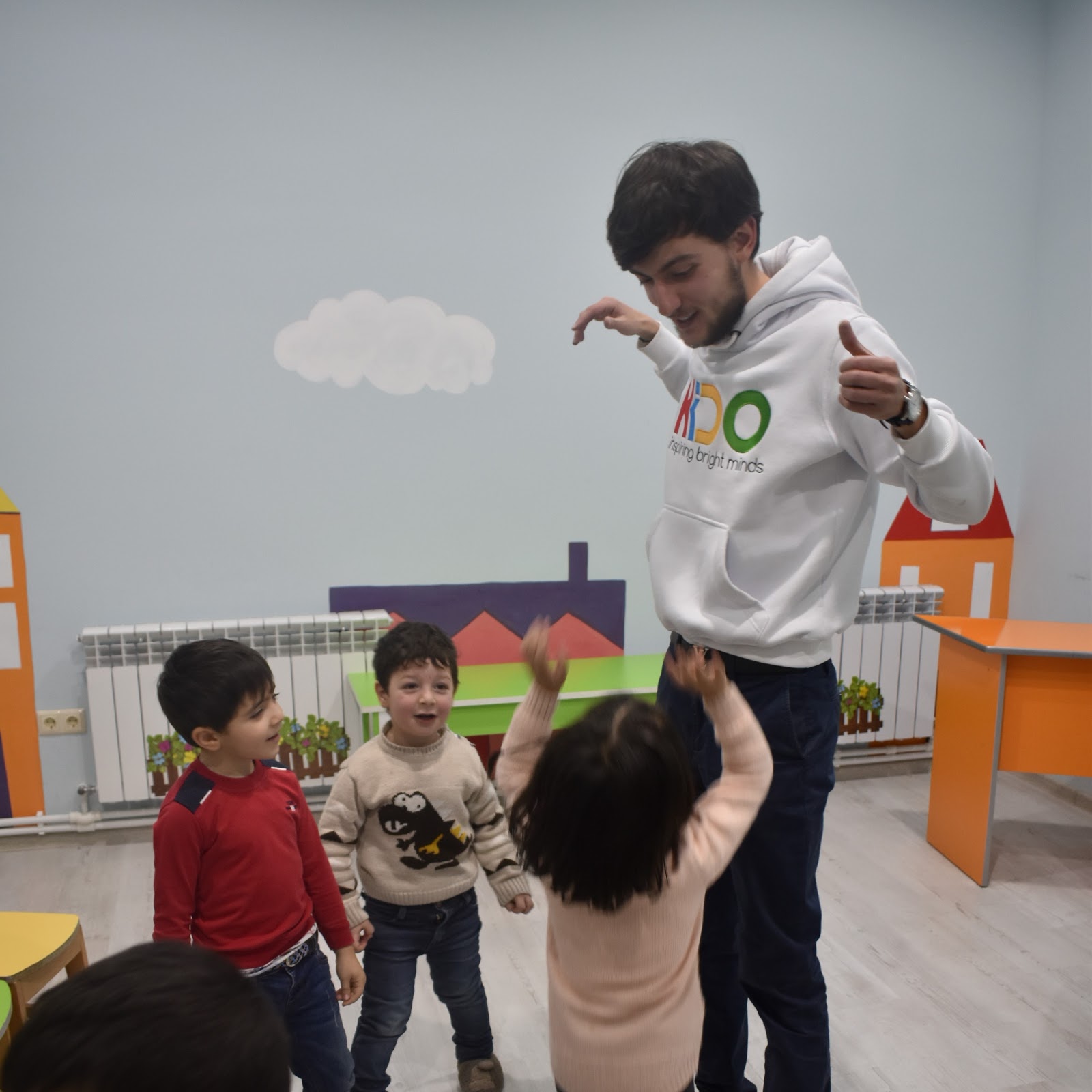
“With Arthur, we became more motivated and did our best to [make] the best child development center,” said Shakhbazyan. “It was incredible, awesome to imagine, that we could do everything better than it [had been].”
And that’s exactly what they did. They raised enough money to rent and refurbish an old office near Sunland. Then they broadened their reach and collected even more to create what KIDO is today: a new, state-of-the-art child development center. In operation since August 1, KIDO is thriving with 40 students attending its half-day and full-day, working-parent-friendly programs.
“Donating to KIDO is not a one-time charity, it’s an investment,” said Gasparyan on the Diaspora’s overwhelming response. “They understand the importance of education in Armenia. It has a long-term effect on improving our country’s situation. Our primary resource is our children; we don’t have a lot of money, and natural resources and our geographic location certainly doesn’t help.”
That being said, a small investment goes a long way in Gyumri. While most private preschools cost a prohibitive 30 to 35,000 dram per month (roughly equivalent to monthly rent for a one-bedroom apartment), KIDO tuition is 13,000 dram, closer to the 7-8,000 dram for governmental preschools. Low-income families, as well as those affected by special circumstances like disability, have the opportunity to be sponsored by a Diasporan donor.
But KIDO’s differences extend far beyond its affordability. Gasparyan and his team want to change the education landscape in Gyumri, and eventually in throughout all of Armenia, with the ultimate goal of increasing standards of living. They believe that early intervention in an environment of love and kindness is the key to doing so.
That’s why KIDO teachers implement proven pedagogical techniques that recognize the sensitive nervous systems and environmental perception of young children. There is a strict policy against shouting and a more flexible approach to classroom management, in which children are not scolded for their natural curiosity to explore their surroundings as they learn. According to Gasparyan, many young children in mainstream Gyumri schools are fearful of their instructors, who tend to raise their voices and even employ corporal punishment in the classroom.
At KIDO, teachers pay special attention to the interests and skills of the children, encouraging the development of their natural proclivities. “Every child has inborn talents,” the center’s website reads. “We will help to discover and develop them.”
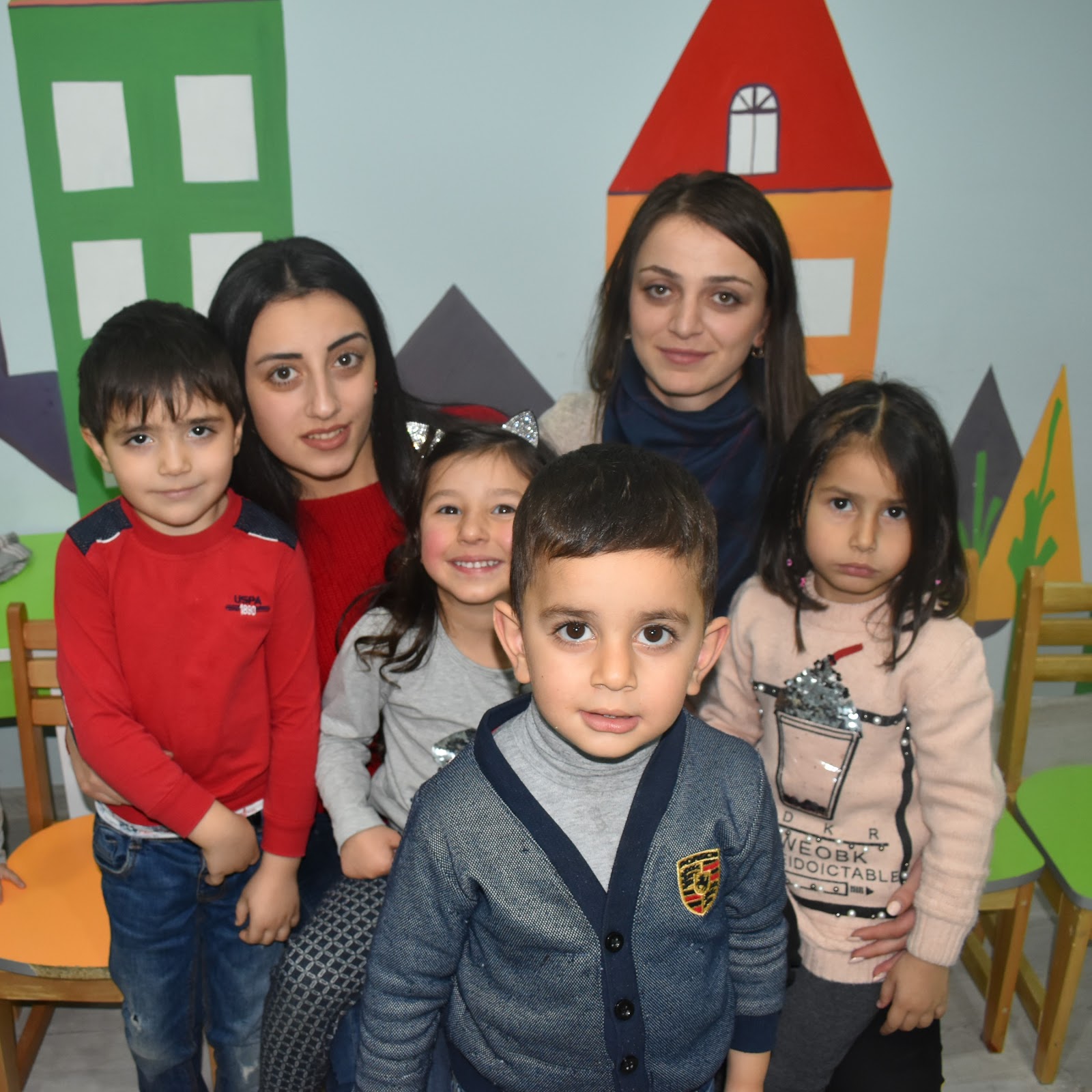
As I sat with Gasparyan, I saw this policy in action. Gor flitted around us. He, I felt, was a prime example of a bright child who could be easily quashed by a rigid educational system. KIDO seemed to be a great fit for his natural energy and curiosity.
When I asked the little guy what he wanted to be when he grew up, he said, “a soldier.” Gasparyan immediately affirmed his dream, channeling it in a constructive direction. “To protect the motherland!” he encouraged Gor, who smiled and nodded. Gasparyan then added that the boy displayed an affinity for all things technical, at which point the two had a short dialogue about using robots to help save the lives of soldiers. I was impressed.
As Gasparyan and I continued to talk, Gor fittingly became fascinated by my computer and then my camera, which he commandeered during our discussion.
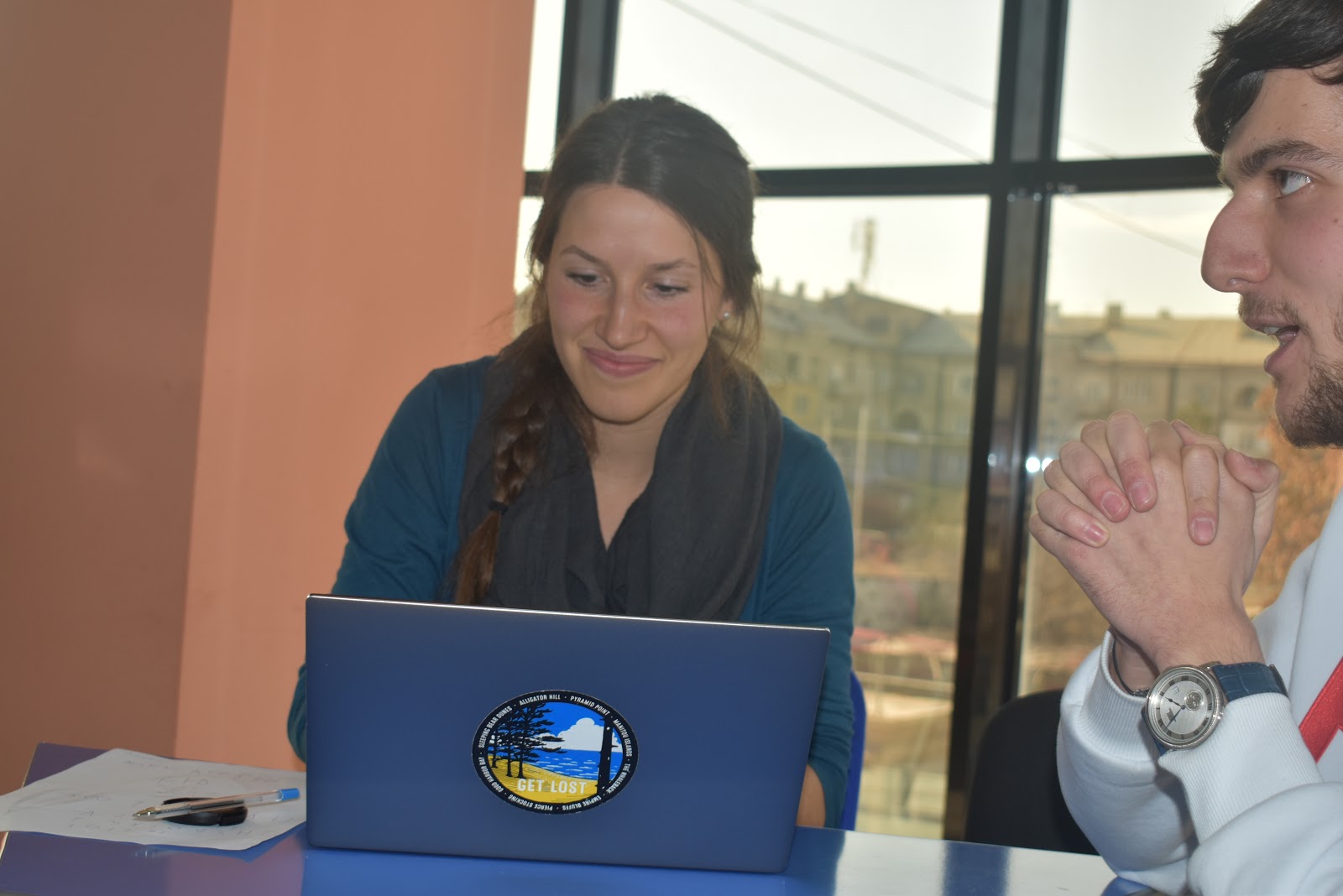
In line with KIDO’s values, I ensured Gor wore my camera safely around his neck and then let him free to explore the workings of the apparatus (getting a chuckle later as I perused the crazy angles and zooms of his photos.)
Gasparyan and I discussed KIDO’s future plans, which are just as ambitious as Gor’s. The team has hopes to open KIDO-branded playgrounds, art centers and sport centers as well as more KIDO schools in other regions of Armenia. Until then, there will be many developments underway in Gyumri. Recently, Gasparyan earned a grant from Birthright Armenia to furnish and further develop the center’s classrooms and activity rooms. He and his team are working to expand educational programming to include teachers and parents, enabling them to be more effective as they support each other in their respective roles in children’s lives.
“We want to create a parenting school with master classes and seminars on how to communicate and teach children at home,” Gasparyan told me. “This is very important in reinforcing the work we do at KIDO.”
I wondered what the world would be like if all parents responded as gracefully as Gasparyan did when Gor and his little friend Ani interrupted us throughout our discussion. Loyal to his duty as a cultivator of little minds, Gasparyan patiently balanced the children’s many questions in between answering my own.
On that note, Gasparyan anticipated one of the questions nearest to my heart — were there plans to make KIDO inclusive—before I’d even had a chance to ask him. There is a definite plan, he said, to integrate children with disabilities into the KIDO community. But first, KIDO staff need the proper training to make the transition smooth. Inclusive education without proper preparation, as Armenian experience shows, does more harm than good.
As we neared the end of our interview, I gave Gasparyan a chance to share any final thoughts. He concluded with a call to action to Diasporans. “Play a role in Armenians’ lives,” he said with feeling. “Don’t just send money to your relatives; come here and understand the real problems and real needs. My dream is that every Armenian has his part in investing in this country’s development.”
Editor’s Note: Images of the children have been published with the permission of KIDO’s Arthur Gasparyan.


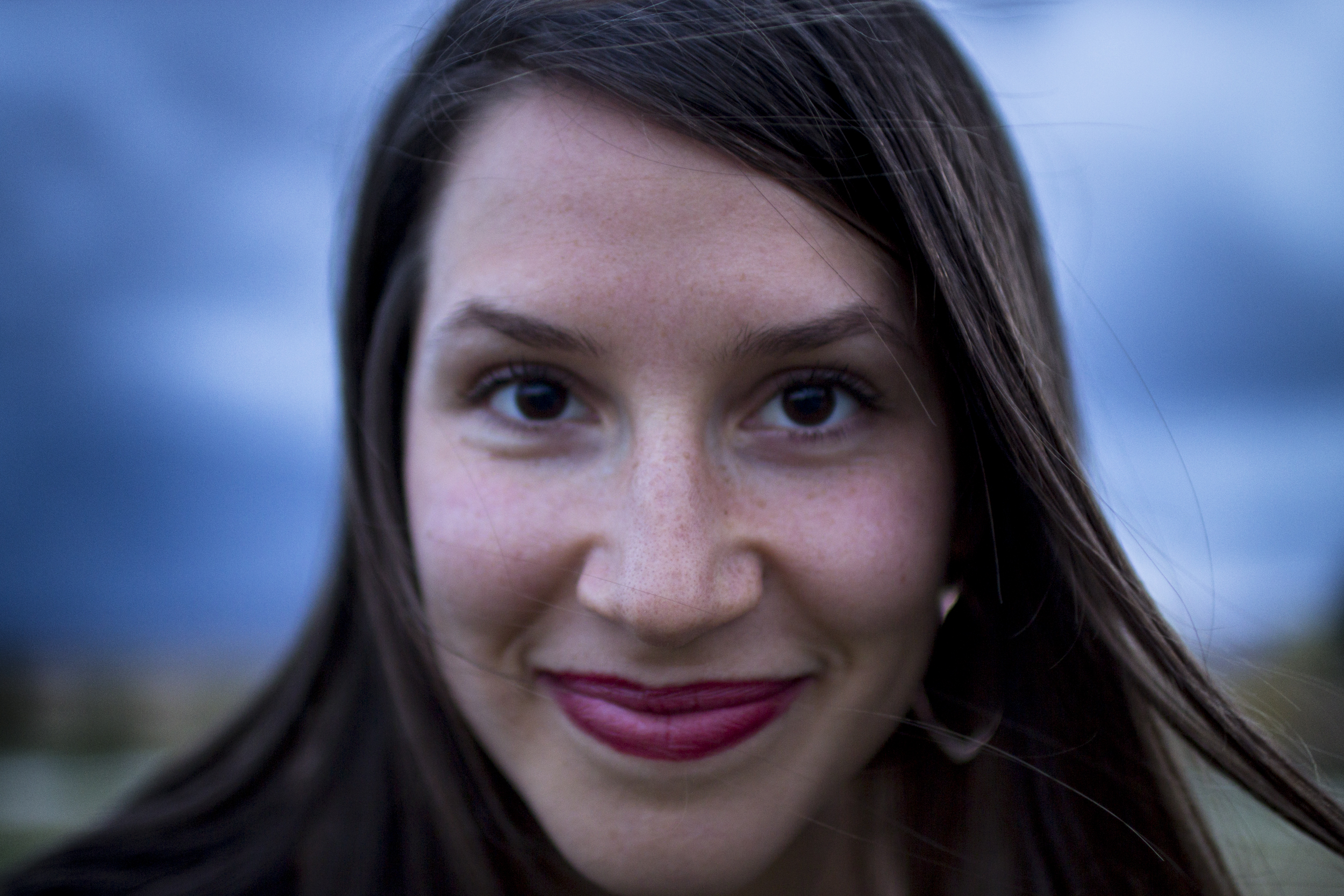
Be the first to comment